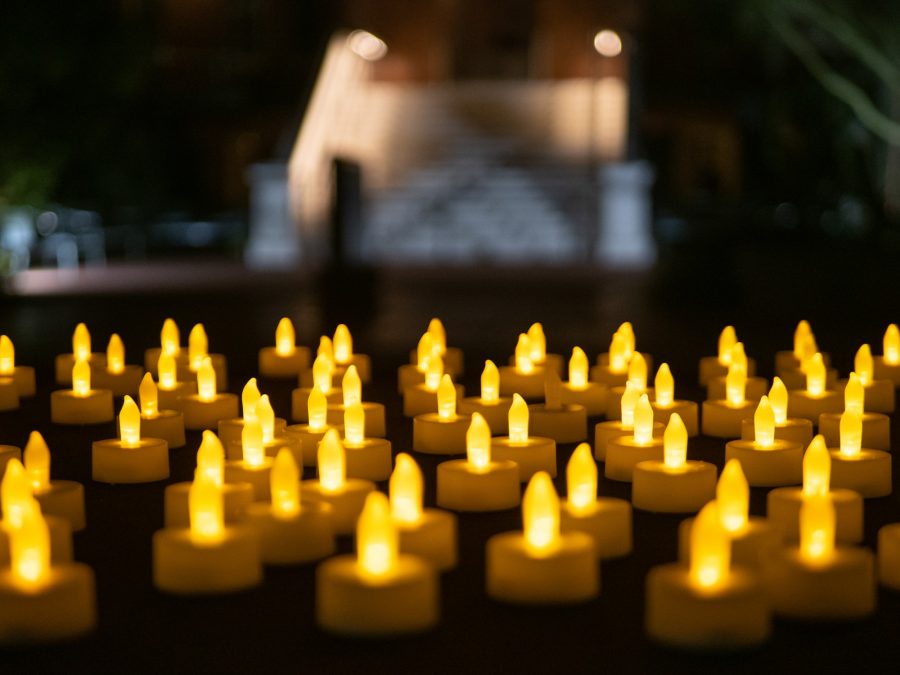Each year, National Gun Violence Survivors Week is recognized from Feb. 1-7 to honor those who have survived gun violence. For people who have lived through such horrors, oftentimes surviving is just half the battle. To survive is to create an invisible weight that presses against their shoulders; one of trauma, guilt and immense loss. At the University of Arizona, we carry this heaviness more than we would like.
Where do we put it?
According to UA sociology professor and gun culture expert Jennifer Carlson, it’s probably best not to store it on the top shelf.
“For those who survive it, gun violence is not a demarcated event with a clear ‘ending’; while the immediate physical danger may pass, gun violence leaves scars — physical, psychic, social — that impact people’s basic feelings of safety and security and can undermine, in the case of a campus, students’ ability to be focused learners and engaged members of the student body,” Carlson said. “This is why it makes sense not just to talk about ‘gun violence’ but also ‘gun trauma,’ and to recognize that people need different kinds of support in the aftermath of gun violence.”
During a week to honor gun violence survivors, Carlson’s words couldn’t be any more relevant. It has been almost four months since the death of UA professor Thomas Meixner and a little over five months since the shooting at Yugo, a student apartment. These marks of violence within our community remain the most potent in our mind and still many of us anxiously await the “when” of the next tragedy — not the “if.”
Herein lies the invisible scar gun violence marks, one we as a campus community have not yet healed from. I got the chance to speak with Patrick Robles, the Associated Students of the UA student body president. When Meixner was killed in October, Robles was on campus at the Student Union Memorial Center, just a few buildings away from the shooting.
“I ran into the hall, grabbed as many students as we could, brought them inside and locked the doors. I used the mass shooting training I learned in high school,” Robles said.
In the week following, class resumed on our campus as normal. Memorials were created and then taken down. Less than a month earlier, the Yugo shooting occurred. Students walked past broken glass and blood stains for days. Somehow, we shrug this kind of trauma off.
“It could have been us,” we say. We usually follow it by talking about how lucky we feel that it wasn’t. Perhaps within these kinds of statements, we hope that an invisible bandaid will be placed on the tragedy we have experienced.
Of course, we know that’s impossible.
Students and faculty should use this week, Feb. 1-7, to acknowledge what we have survived. When gun violence is something we have come to anticipate, we all become survivors in some sense or the other.
“Yes, there are people who were directly affected. But then, let’s talk about the community-wide impact,” Robles said. “I know students who still feel concerned walking on campus. I know students whose anxiety is triggered. With that, students want to see some systematic change happen.”
While the systematic change that Robles mentioned may seem out of reach, it seems the best place to start is small. As students, there has never been a better time to start asking questions. How do we dissect an issue that runs so deep within our country’s culture? How can we compact it to a campus size? How do we take care of ourselves and our peers in the process?
While change in the system is the obvious goal, it’s also the hardest and most complex to achieve. Gun violence, of course, is not unique to the UA campus. According to an October 2022 Arizona Public Media article, 80% of homicides from 2018-21 in the Tucson Police Department’s jurisdiction had to do with gun violence.
To delve into the issue of gun law reform, especially in the state of Arizona, would perhaps be an entirely different story in itself and a longer one at that. The point of National Gun Violence Survivors Week isn’t to brainstorm some lightbulb moment where we come up with the grand solution to the worsening problem. Perhaps it is instead a time for us all to reflect, to remember what we have lost.
“Gun violence survivors week represents a moment to pause, at least with regard to gun violence,” Carlson said. “It is a moment to recognize that gun violence is not something that simply happens ‘out there’ or ‘somewhere else’ but touches our lives. Gun violence survivors week provides a space to reckon with what this means — as individuals, as members of a community, and as a society where gun violence happens often enough that it is often treated as unremarkable.”
Countless members of the UA community know the horror of gun violence as they do their neighbors or the back of their hand. National Gun Violence Survivors Week is a time to acknowledge the brutality we have witnessed while simultaneously not allowing it to define us.
“Some students may throw themselves into their studies; other students may need time away from campus. And still others may not consider themselves impacted at all — until they realize that they are,” Carlson said.
Follow Olivia Krupp on Twitter

Olivia is a sophomore studying journalism. She enjoys reading, foreign films, and poetry in her free time.









